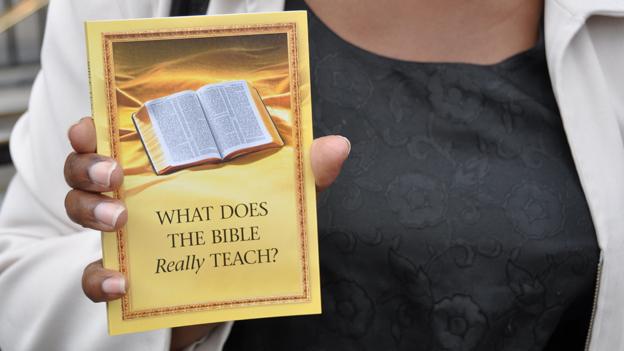Russia court outlaws 'extremist' Jehovah's Witnesses
- Published
The Russian authorities are clamping down on extremism nationwide
Russia's Supreme Court has accepted the government's request to designate Jehovah's Witnesses as an outlawed religious group, deeming it to be an extremist organisation.
The justice ministry argued that the group had distributed pamphlets which incited hatred against other groups.
Lawyers representing the group reject the claims and say they will appeal.
The denomination says it has 175,000 members in Russia - a country where it was persecuted during the Stalin era.
An estimated eight million people worldwide are part of the Christian-based movement, best known for going door-to-door looking for new converts.
Jehovah's Witnesses at a glance
Practitioners of the faith argue that it means their activities from now on will be criminalised.
The justice ministry urged the court to close the group's national headquarters near St Petersburg, Russian news agencies reported, in addition to banning some of its "extremist" publications.
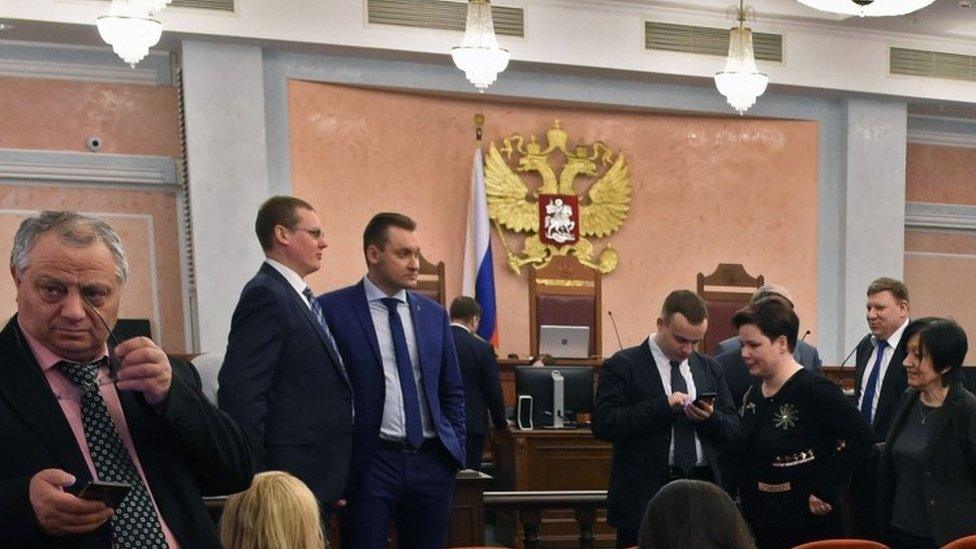
The court in Moscow on Thursday (above) accepted the government's argument that Jehovah's Witnesses fomented extremism
One pamphlet distributed by the group quoted the novelist Leo Tolstoy as describing the doctrine of the Russian Orthodox Church as superstition and sorcery.
Officials have accused the religion of destroying families, propagating hatred and endangering lives.
Jehovah's Witnesses say the accusations are completely untrue. A spokesman told the AFP news agency that he was "shocked" by the ruling.
"I didn't expect that this could be possible in modern Russia, where the constitution guarantees freedom of religious practice," Yaroslav Sivulsky said.
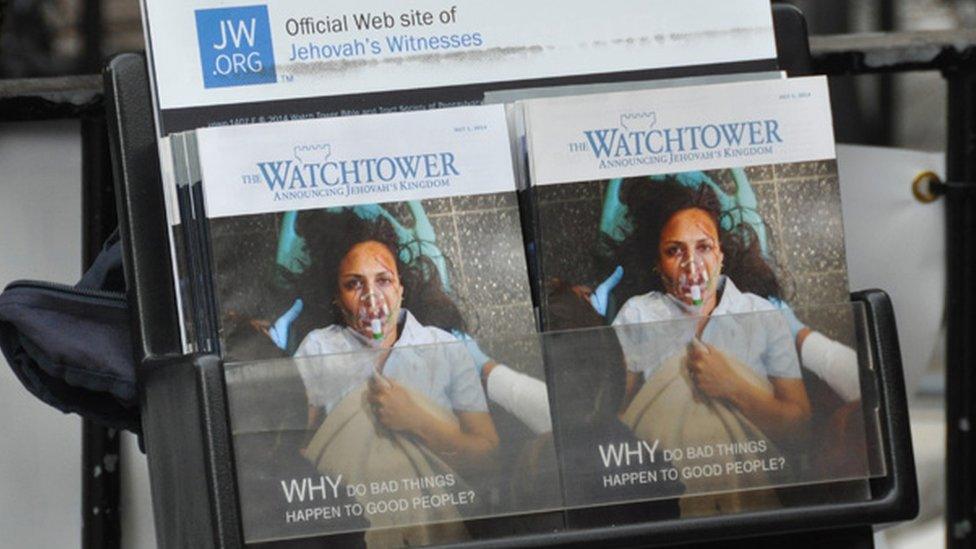
Russia's justice ministry argues that Jehovah's Witnesses pamphlets incite hatred
The Jehovah's Witnesses group was founded in the United States in the 19th century.
They take most of the Bible literally and refuse blood transfusions. They are not seen by traditional Christian Churches as a mainstream denomination.
During Joseph Stalin's reign of terror in the Soviet Union it was outlawed and thousands of members were deported to Siberia. Other Christian groups were also persecuted.
As the Soviet Union collapsed, there was a revival of Christianity in Russia and the ban on Jehovah's Witnesses was lifted in 1991.
Gradually attitudes towards the movement hardened again and in 2004 it was accused of recruiting children and preventing believers from accepting medical assistance.
Human rights group Sova has argued that an "official repressive campaign" has been conducted against the movement for years and many of their members have been physically attacked.
- Published6 April 2017
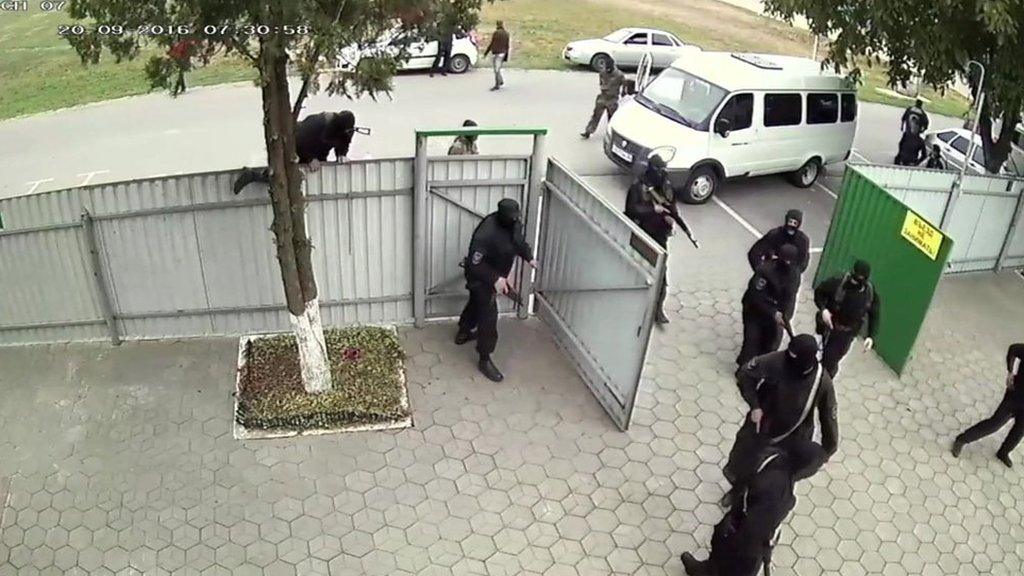
- Published5 April 2017
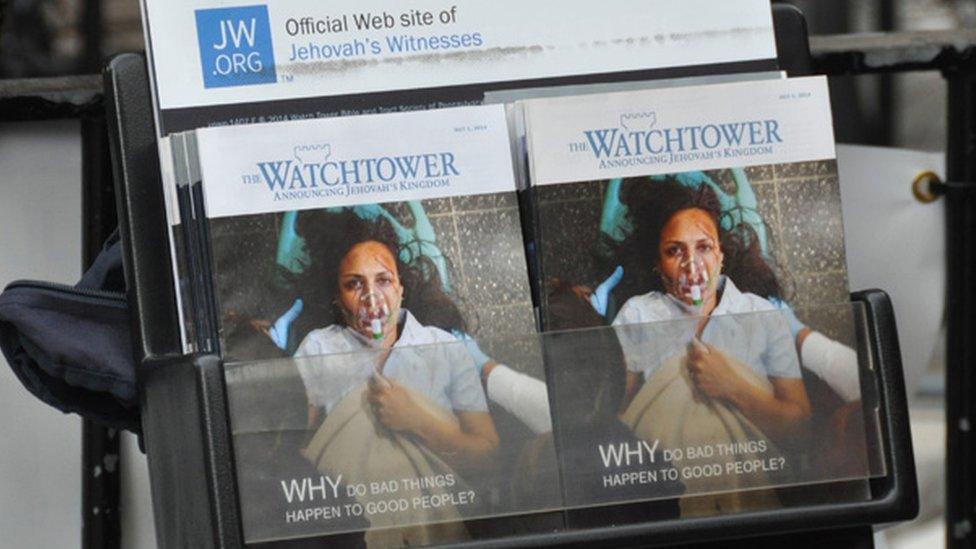
- Published19 June 2015
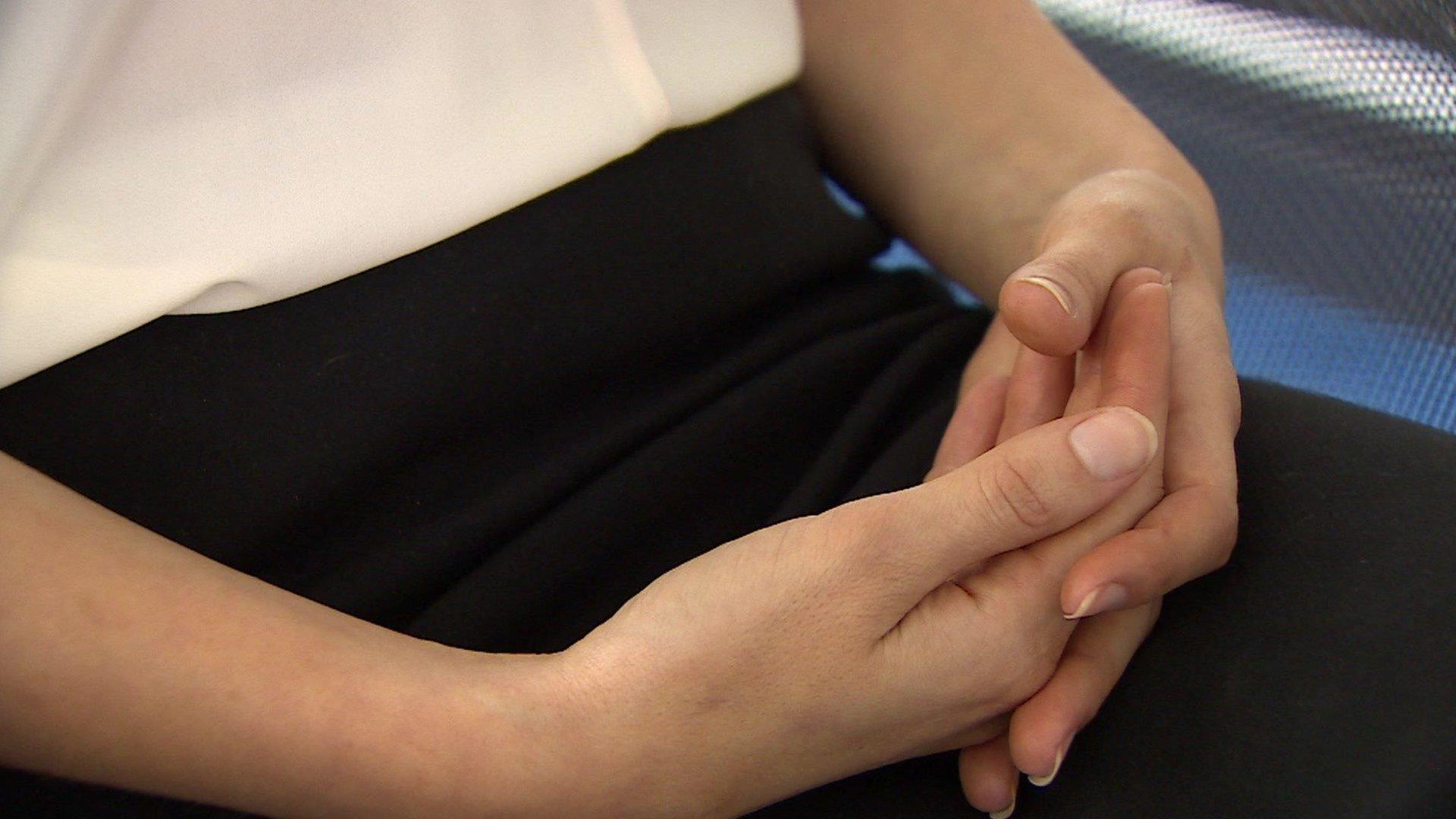
- Published22 February 2017
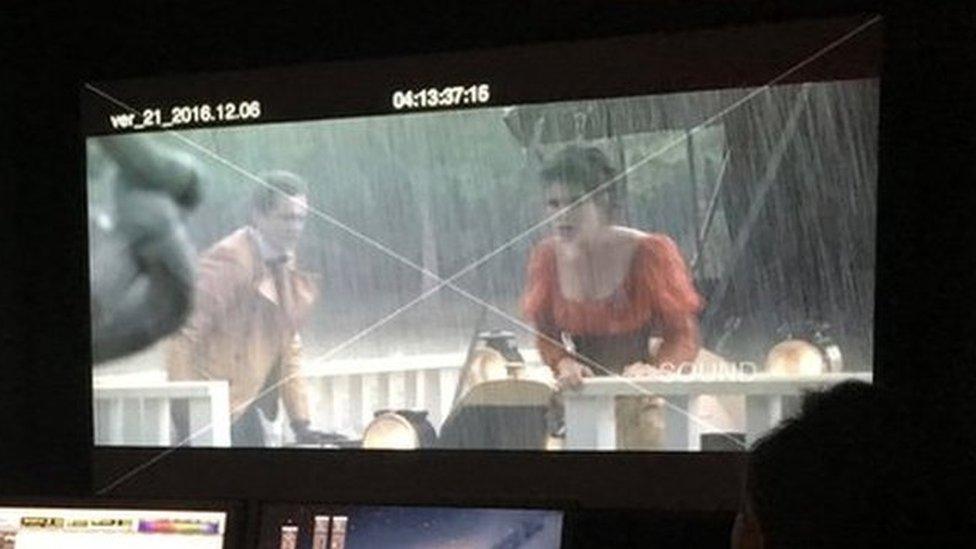
- Published21 August 2015
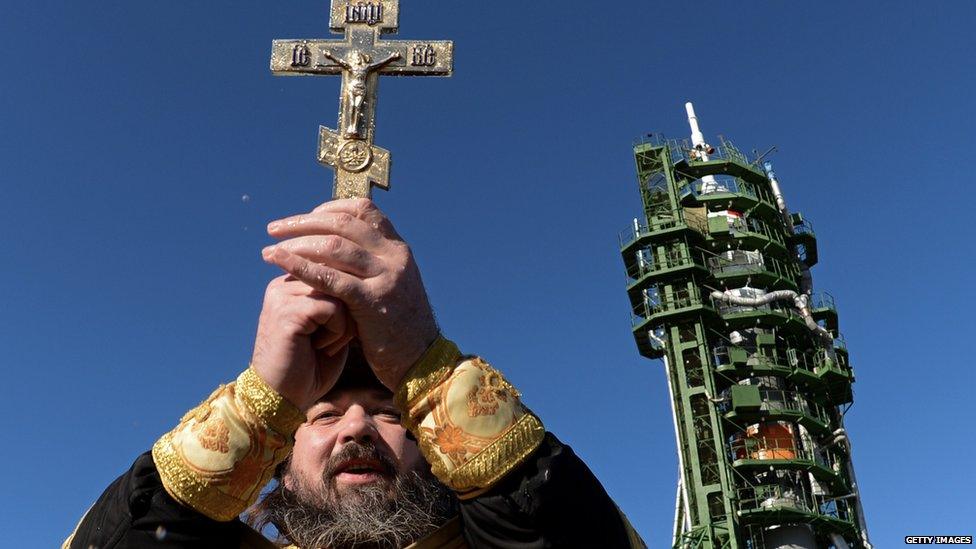
- Published24 May 2015
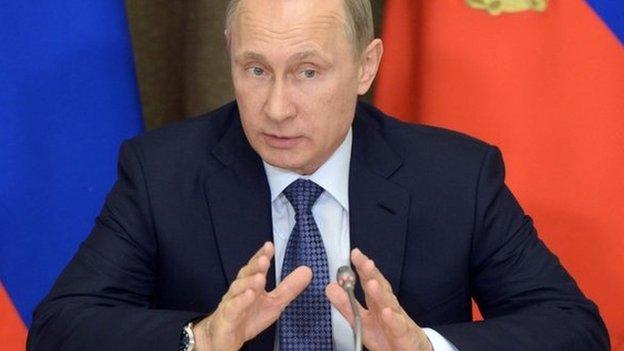
- Published8 July 2014
